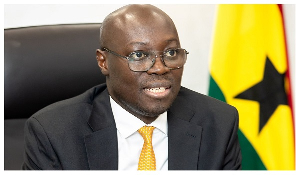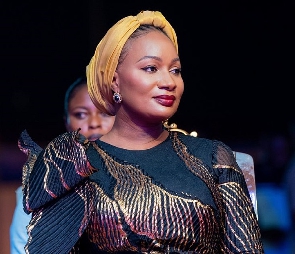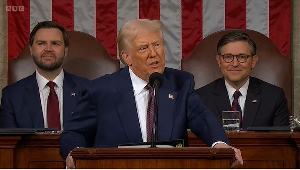The Times in its lead story reports that under the Free Compulsory Universal Basic Education (FCUBE) programme, communities and parent-teacher (PTAs) have been empowered by the Ghana Education Service (GES) to impose special levies on basic schools to raise funds for school projects. This is, however, subject to approval by the district assemblies. It is also on condition that no school child will be sent out of school for his or her parent's failure to pay such levies. In a story under the headline: "GES gives power to communities", the Times says Mr Joseph Kwesi Odom, head of Public Relations at the GES Headquarters who announced this said tuition and the supply of equipment and tools are free in all basic schools in the public system. GRI
In another front page story, the Times reports that the United Nations Development Programme (UNDP) has stated that in spite of serious efforts to eradicate poverty, about 1.3 billion people still live in extreme poverty, surviving on less than one dollar a day. They lack basic health, sanitation and education services. "The world has already made great strides in relieving the worst aspects of poverty, more progress has been achieved in the eradication of poverty in the last five decades than in the last five centuries. "But not everyone has benefited from the great advances in human well-being. Women and children are still disproportionately affected by poverty. Not only do they earn smaller incomes than men, but their opportunities to inccrease earnings are ore limited", the Times quoted the UNDP as saying. GRI
"Set up political parties fund...Participants suggest", is the headline of a back page story in the Times which says participants at a public forum on the 1992 Political Parties Law on Monday called for the establishment of a political parties' common fund to further enhance democracy in the country. The Times says although there was a consensus on the institution of the fund to be managed by the state in consultation with the various political parties, the participants failed to agree on how to generate the funds and their allocation. There were divergent views on the number of parties the state can fund and the ceiling on spending. According to the Times while some of the participants want the number of parties the state can sponsor pegged at four, others felt such a provision will be inconsistent with the democratic aspirations of the nation. GRI
Editorial News of Thursday, 9 October 1997
Source: --
















